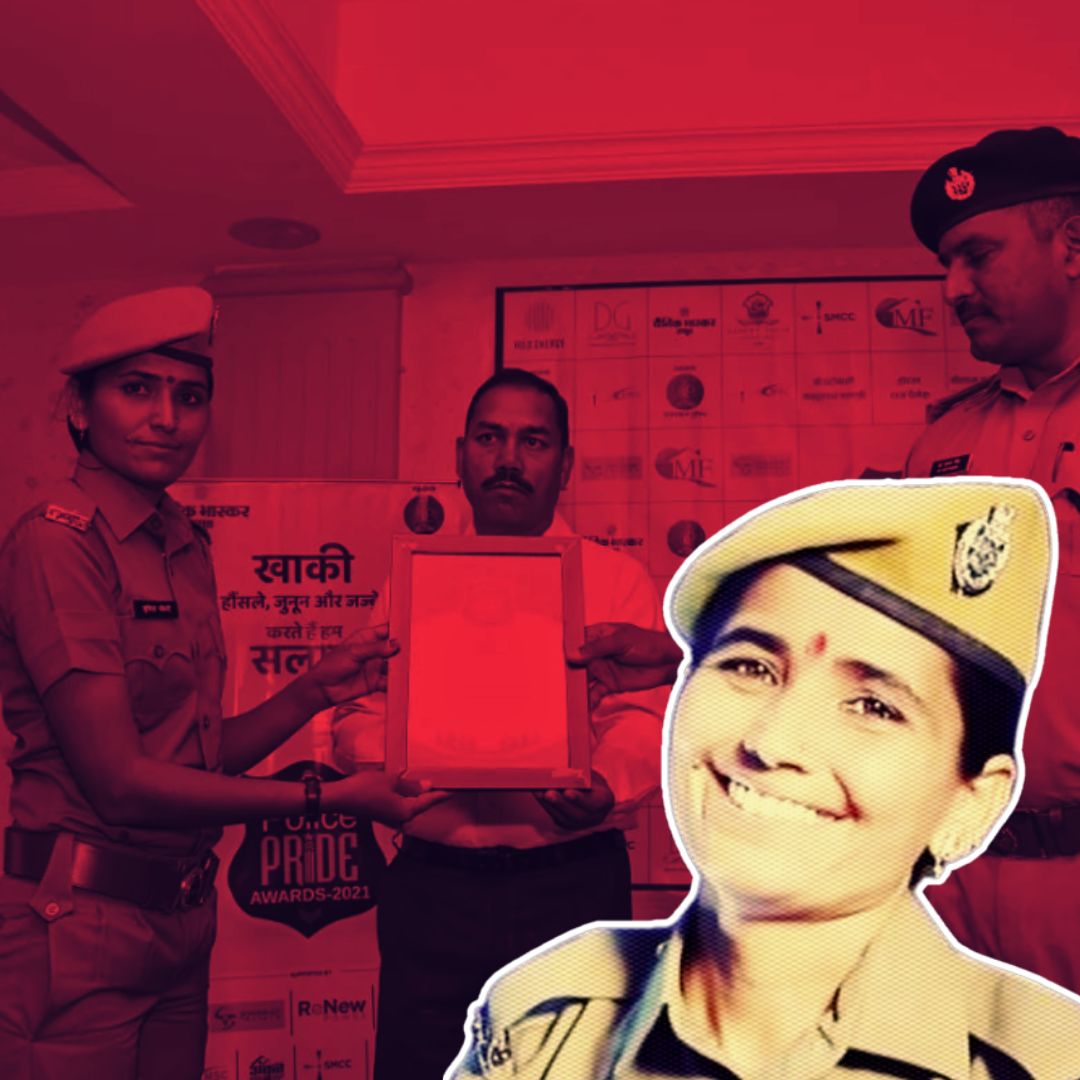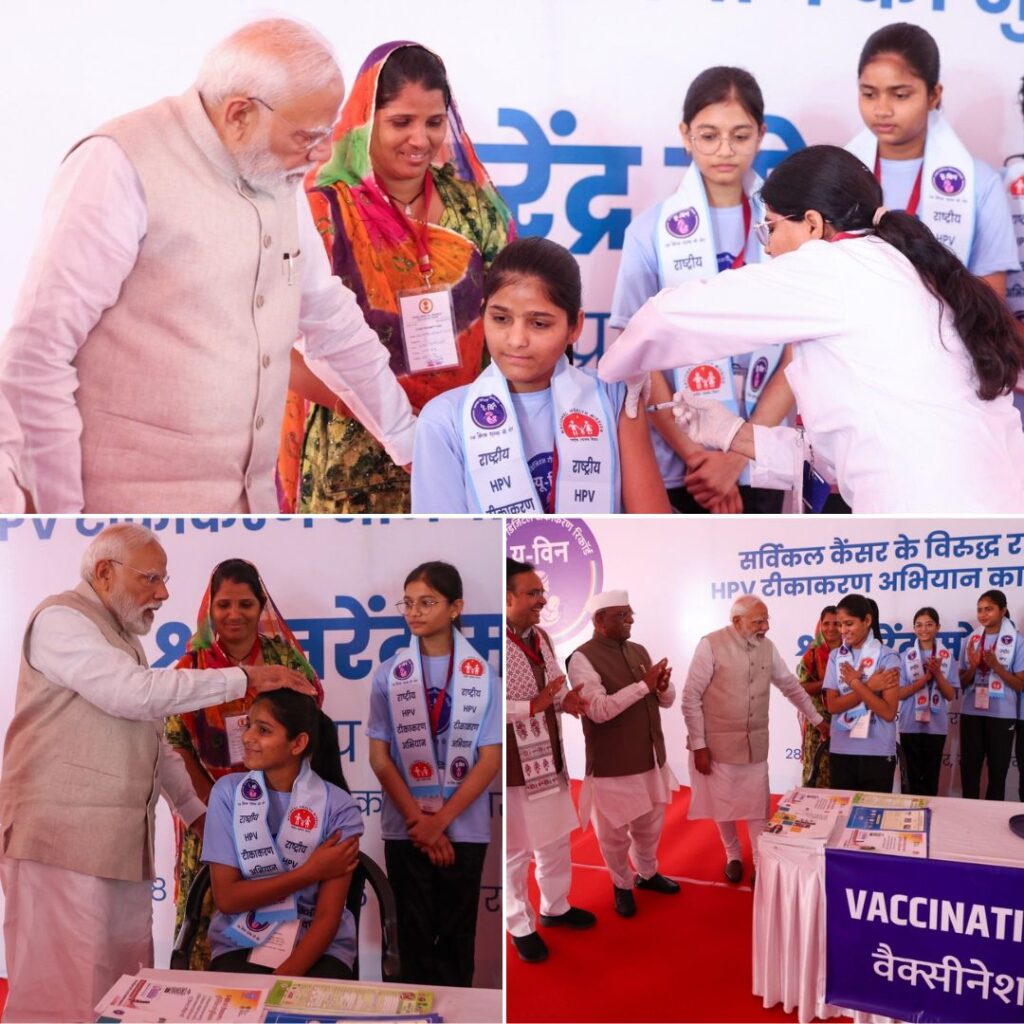Sunita Choudhary, a police constable from Rajasthan, has become a symbol of resilience and inspiration. Married at three in a state with one of the highest rates of child marriage in India, she defied societal norms to pursue education and became a police officer at just 19.
Later, she battled stage 2 ovarian cancer with courage and family support. Now known as “Policewali Didi,” Sunita dedicates her life to social work, educating over 1,000 children on safety and self-defense. Her story highlights the power of determination, education, and community support in overcoming adversity.
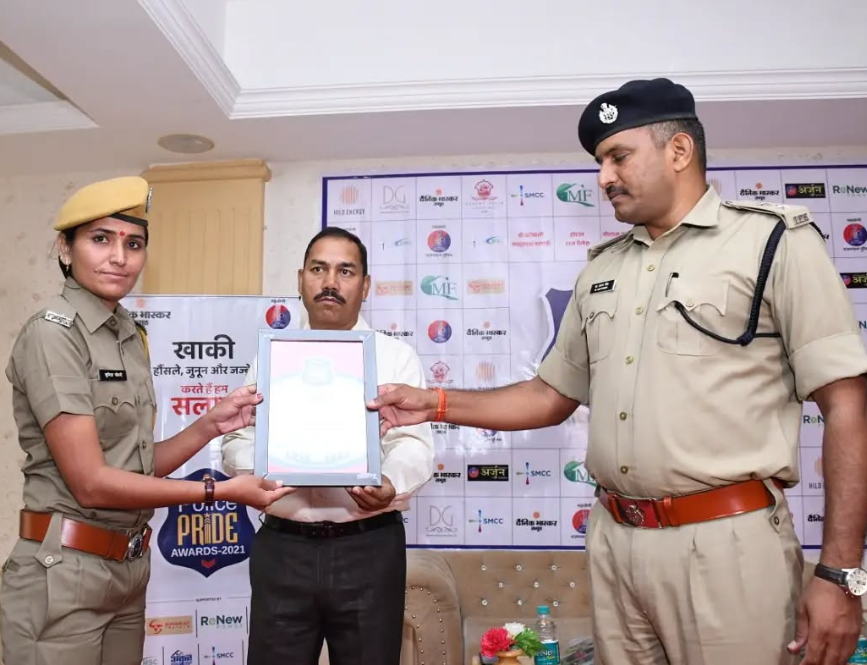
Breaking Barriers: Sunita’s Inspiring Journey
Born in a small village in Rajasthan, Sunita Choudhary’s life was shaped by the harsh realities of child marriage—a practice still prevalent in the region. Married at just three years old, she grew up in an environment where girls were often denied education and opportunities.
However, Sunita was determined to chart her own path. Encouraged by her father, she walked several kilometers daily to attend school while managing household chores. Despite societal resistance, she excelled academically and cleared the police constable exam at 19, becoming the first female officer from her village.
Her success was not without challenges—she faced ridicule and skepticism for breaking traditional gender roles.
Her journey took another turn when she was diagnosed with stage 2 ovarian cancer. Enduring six months of chemotherapy, Sunita found solace in music and drew strength from her husband’s unwavering support during recovery. Her resilience through these trials has made her a beacon of hope for many.

From Adversity to Advocacy
After defeating cancer, Sunita resumed her duties with renewed purpose. She launched social work initiatives focused on empowering children and women in rural Rajasthan. Visiting schools across the state, she has educated over 1,000 children on critical issues such as self-defense, road safety, and personal security.
These efforts earned her the affectionate title “Policewali Didi.” Recognized for her dedication, Sunita was honoured by local authorities for inspiring countless individuals across India.
Her advocacy also extends to addressing child marriage—a practice that continues to affect millions of young girls in Rajasthan. By sharing her story, Sunita has become a role model for young girls trapped in similar circumstances, proving that education and determination can break even the strongest societal barriers.
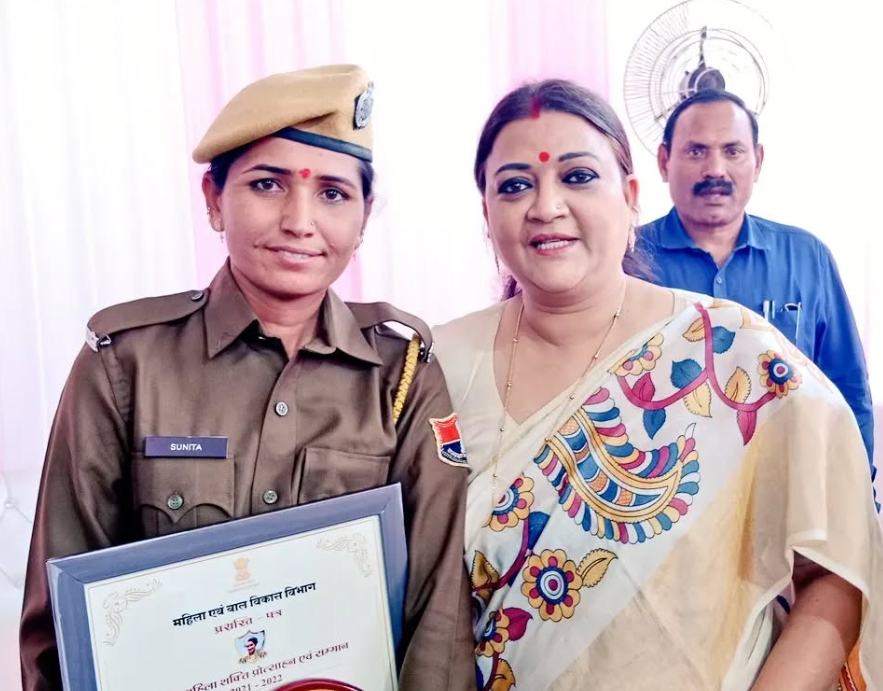
Child Marriage: A Persistent Challenge in Rajasthan
Rajasthan remains one of India’s top states for child marriage prevalence despite significant reductions over the years. According to NFHS-V data (2019-21), 24.5% of women aged 20-24 reported being married before turning 18—a notable drop from 35.4% in 2015-16 and 65.2% in 2005-06.
However, rural areas continue to bear the brunt of this issue; nearly 89% of child marriages occur there. Poverty, lack of education, and entrenched socio-cultural norms exacerbate this problem.
Efforts by civil society organizations have helped prevent thousands of child marriages annually through legal interventions and community persuasion. For instance, Rajasthan saw nearly 7% of all child marriages stopped nationwide in 2022-23.
Education remains a critical factor—studies show that secondary education significantly delays marriage age among girls. Yet Rajasthan ranks third-lowest nationally for secondary school completion among married teenage girls aged 15-19.
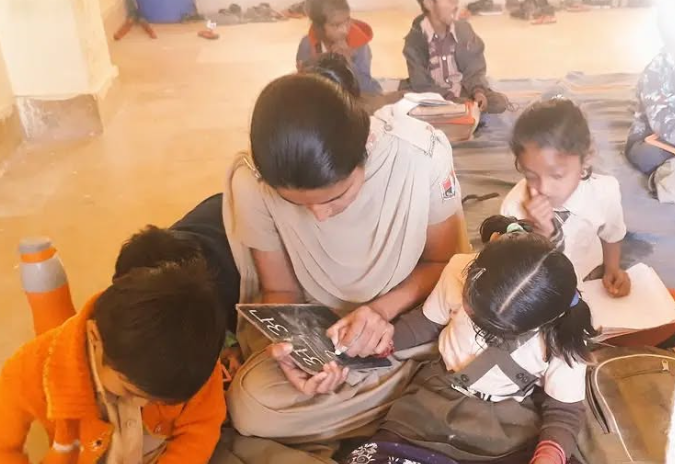
The Logical Indian’s Perspective
Sunita Choudhary’s journey exemplifies courage and social responsibility. Her life underscores the importance of education as a tool to break cycles of poverty and oppression while showcasing the transformative power of family encouragement.
At a time when child marriage continues to harm millions of young girls in India despite reductions, stories like Sunita’s serve as both inspiration and a call to action.


